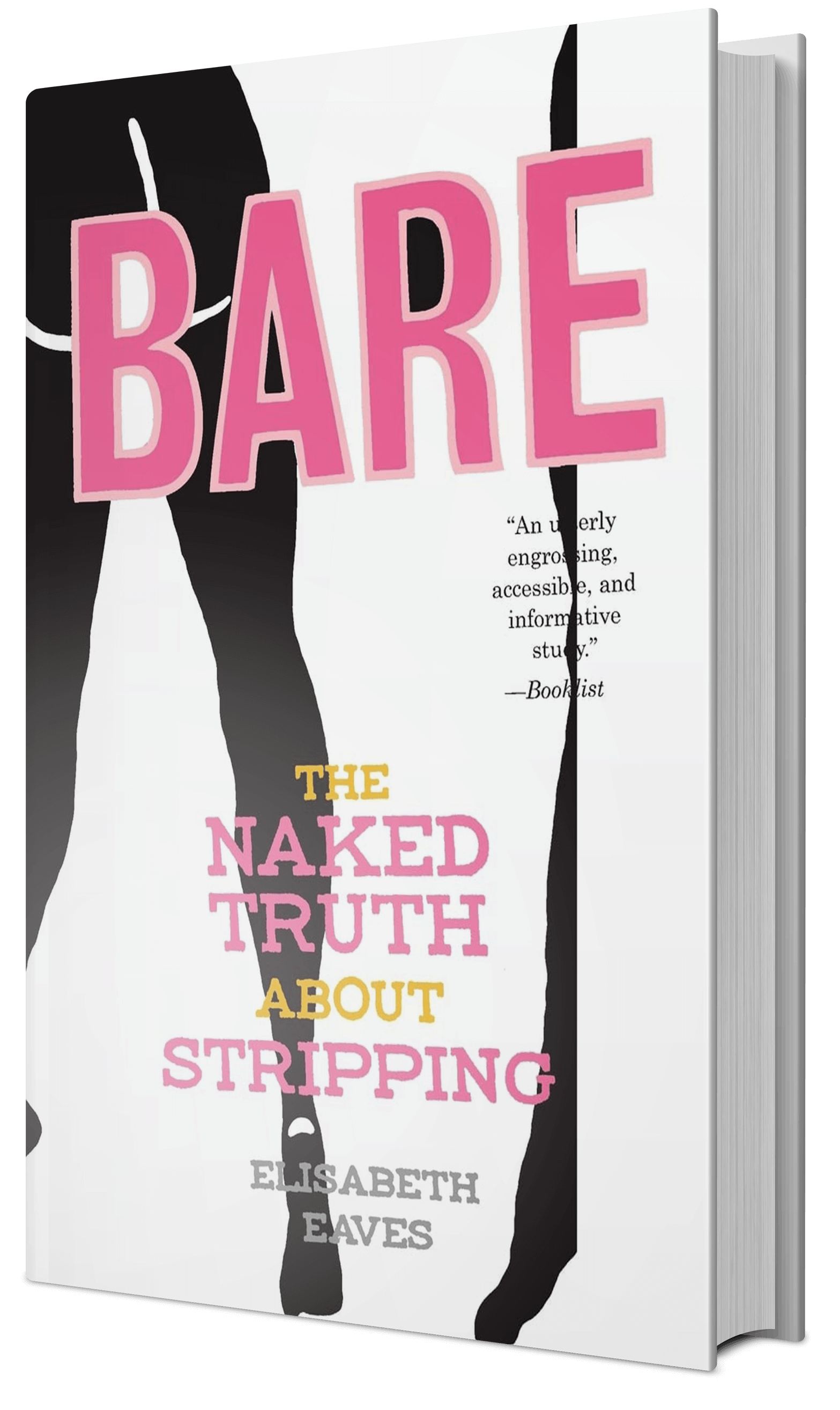New in the Northwest Book Review Ex-Dancer Strips Illusions of Sex Industry, Identity
The Oregonian
By Sarah Gianelli
To strip or not to strip — for author Elisabeth Eaves, that was the question. After toying with the idea for some time, the Vancouver, B.C., native accepted a job at the Lusty Lady, a Seattle peep show parlor across the street from the Seattle Art Museum.
Eaves worked at the Lusty Lady for a year before moving to New York, where she received a master’s degree in international affairs from Columbia University. Plagued by lingering questions about her experiences at the Lusty Lady, Eaves quit her job as a reporter and returned to Seattle for one last stint as an exotic dancer. “Bare: On Women, Dancing, Sex, and Power” is an articulate — if at times digressive — account of Eaves’ life on and off the stage and the personal and social implications of stripping as she came to perceive them.
Early in her teens, Eaves became aware that her body “was an object of interest to others that was entirely independent” from who she was; “a blank slate for the projections of others.” With her budding sexuality came a pervasive pressure to stifle it, and as a young woman Eaves was infuriated and confused by the sexual double standard imposed on women. Eaves surmised that “the only women who seemed to be free of the rules were prostitutes and strippers” — a sentiment that would propel a twentysomething Eaves to test the theory herself.
Much of “Bare” is devoted to the particulars of working at the Lusty Lady and the failed relationships and career ambitions of Eaves and a number of her co-workers. While the lifestyles and personalities of Eaves’ fellow dancers serve to obliterate stripper stereotypes and, in the end, contribute to Eaves’ conclusion that “all sexuality for profit was insidious,” the book has more momentum when Eaves sticks to observations taken directly from her own life.
“Bare” is most interesting when Eaves looks at the discrepancies in sexual mores that have followed her into adulthood. After her foray into the world of sex work, the sexual hypocrisies that Eaves railed against as a teen remain as prominent as ever, and her feelings about stripping resist a tidy summation.
Ultimately, Eaves stopped stripping because she believed it reinforces the stereotype that women can be bought. She came to realize that “a stripper will pretend to be a kind of woman that doesn’t exist outside the imagination — the naked, adoring, one-dimensional sex object.”
However, “Bare” is far from a denunciation of the profession. Rather, Eaves’ book is one woman’s inquiry into what she was looking for in the profession and what she found instead.

